Brushing your dog’s teeth daily, providing dental chews and bones, using oral care gels and sprays, and incorporating vinegar into their diet can help remove plaque and tartar, keeping their teeth clean and healthy.
Estimated reading time: 6 minutes
Have you ever noticed a yellow or brown substance sticking to your dog’s teeth? It’s not a pretty sight, and it’s called tartar. Unlike us, dogs don’t brush their teeth daily. This allows plaque or tartar to build up, which is more than just a cosmetic issue. If left unchecked, tartar can lead to severe dental problems for your beloved pet.
In this comprehensive guide, we’re going to share a wealth of information about how you can help keep your dog’s teeth clean. We’ll focus on various methods to soften and reduce tartar, aiming to maintain your pet’s dental health in the best possible condition. So, sit back, relax, and prepare to learn more about taking care of your dog’s teeth.
Understanding Tartar Buildup and Plaque in Dogs
First things first, let’s tackle what plaque and tartar are. When your dog eats, bits of food and bacteria stick to the teeth, forming a layer known as dental plaque. Plaque is quite sticky, and if it stays on the teeth, it hardens and becomes tartar. Tartar is a rough and porous substance that can lead to tooth and gum issues.
Preventing tartar from forming should be our main aim. Regular removal of plaque can help prevent tartar buildup on your dog’s teeth. But when tartar already exists, we need to soften it to get rid of it. This is crucial for maintaining good dental health for your dog.
In the next section, we’ll explore the multiple ways to soften dog tartar. But remember, it’s not just about tartar removal. It’s about setting up a routine to clean your dog’s teeth regularly to prevent plaque and tartar buildup in the first place.
How to Soften Dog Tartar and Keep His Teeth Clean
Tooth Brushing for Dental Health
Brushing your dog’s teeth is not just about fresh breath. It’s the first and most vital step in ensuring dental health. This practice helps to break down plaque and tartar, keeping your pet’s teeth clean and healthy.
You can use a soft-bristled toothbrush or a finger toothbrush specifically designed to remove plaque and tartar from your dog’s teeth. A dab of veterinarian-formulated dog toothpaste that contains enzymes and natural ingredients to clean away plaque and tartar can be beneficial.
Aim to brush his teeth daily or at least several times a week. This routine is one of the best ways to prevent tartar buildup on your dog’s teeth.
Dental Chews: A Tasty Way to Clean Dog Teeth
Dog chews are more than just tasty treats. They serve a dual purpose. While your dog enjoys the treat, the chew is hard at work. Dental chews are designed to reduce plaque and tartar build-up on your dog’s teeth.
Chewing can help keep your dog’s teeth clean and also soften tartar. Some dental treats even have ingredients that promote fresh breath and healthier gums and teeth.
The Role of Oral Care Gel in Softening Dog Tartar
Oral care gels are an excellent addition to your pet’s dental routine. These gels, often made with natural enzymes, can break down plaque and tartar on the dog’s teeth.
Rub it onto your dog’s teeth for a few minutes each day to soften tartar. These gels not only improve dental health but can also freshen your dog’s breath.
Utilizing Vinegar to Combat Tartar Buildup
Another natural remedy to tackle tartar is vinegar. Apple cider vinegar has properties that can help soften dog tartar. Simply add a half teaspoon of raw, organic apple cider vinegar to your dog’s water bowl daily.
Alternatively, you can use white vinegar. Mix white vinegar in a glass of warm salt water, and let your dog take a sip once a day. These methods can help keep your dog’s teeth clean.
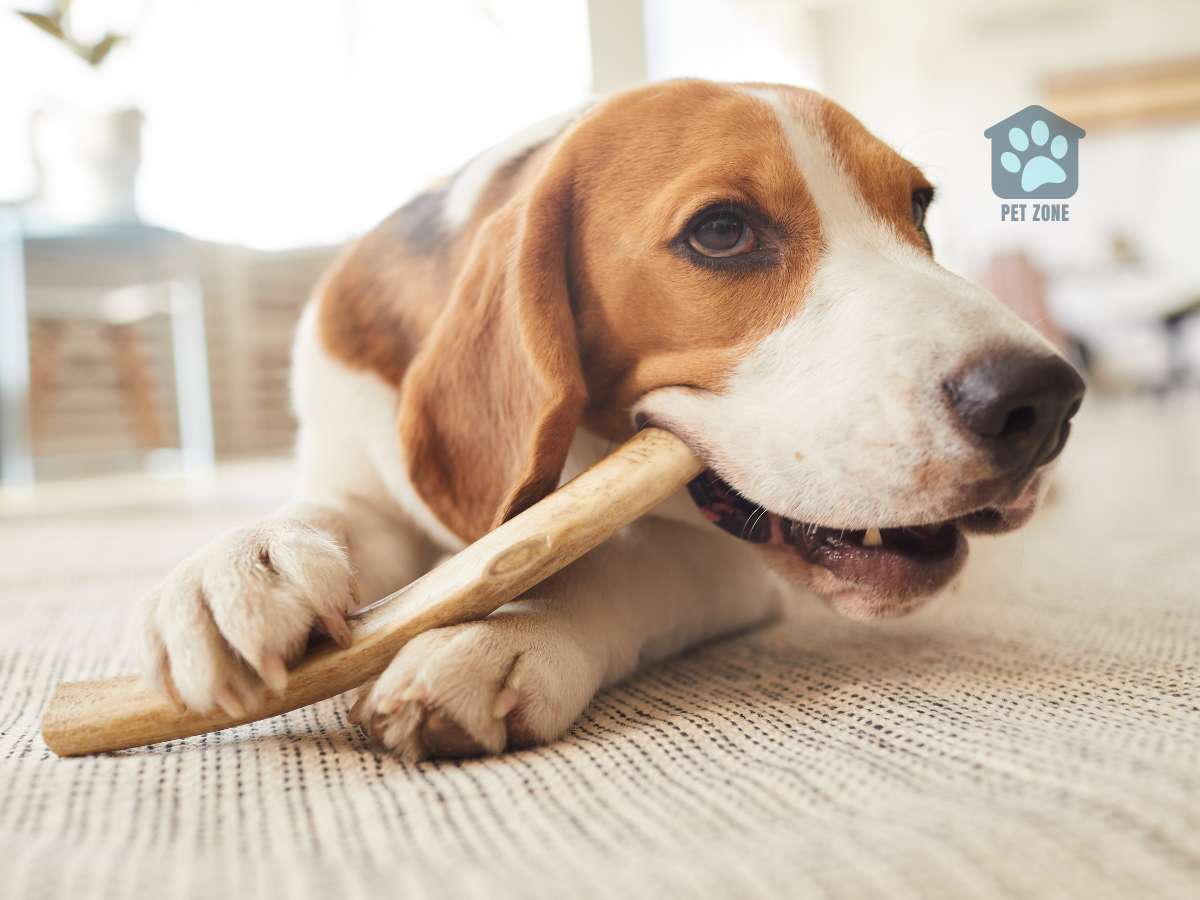
Chewing Bone: A Natural Method to Remove Plaque and Tartar
Dogs love to chew bones, and luckily, this natural behavior is beneficial for their dental health. You can give your dog a safe and appropriate bone from a pet store, specifically made for canine dental care.
These bones can help reduce tartar and stimulate the gums, keeping them healthy. Remember, not all bones are equally safe for your dog. Raw Bones are better than cooked bones, which could have harmful spices and pose a choking hazard.
Dental Wipes and Sprays: Convenient Options for Dental Care
Lastly, don’t underestimate the power of dental wipes and sprays. They are a convenient and effective way to help remove dog tartar. These products are designed to clean the teeth and gums, helping to break down plaque and tartar.
Dental wipes and sprays can be used daily and are particularly useful for dogs who might not be comfortable with brushing.
Consulting the Vet for Professional Dental Care
Although the methods mentioned above can significantly contribute to your pet’s dental health, sometimes home care isn’t enough. In such cases, it’s time to involve the professionals.
Veterinarians have the tools, skills, and knowledge to provide thorough dental cleanings and remove tartar from your dog’s teeth that you can’t manage at home.
Making a regular appointment for your dog with a vet for a dental checkup should be part of your pet care routine. Not only can the vet remove the tartar that has hardened onto your dog’s teeth, but they can also identify any underlying dental issues that might not be visible to the naked eye.
The vet may also provide more tips on how to soften dog tartar and recommend specific products such as certain dog breeds’ suitable dog food or chews. Dry dog food, for instance, can help as it requires your dog to chew more and cleans the teeth in the process.
So, when it comes to your pet’s dental health, remember, your vet is not just a healthcare provider but also an invaluable resource for advice and support.
Conclusion
Your dog’s dental health is a vital aspect of their overall well-being. Tartar buildup can lead to serious dental issues down the line, so it’s critical to implement preventative measures and treat any existing problems as soon as they appear.
Remember, while at-home care is crucial, it’s also important to take your dog to the vet for professional teeth cleanings and checkups. Your vet can provide additional advice and resources to ensure the best possible dental health for your dog.
By taking these steps, you’ll be providing your dog with the best chance at maintaining healthy teeth and gums. It’s more than just giving your pet a beautiful smile. It’s about giving them a happy, healthy life.
As an Amazon Associate I earn from qualifying purchases.
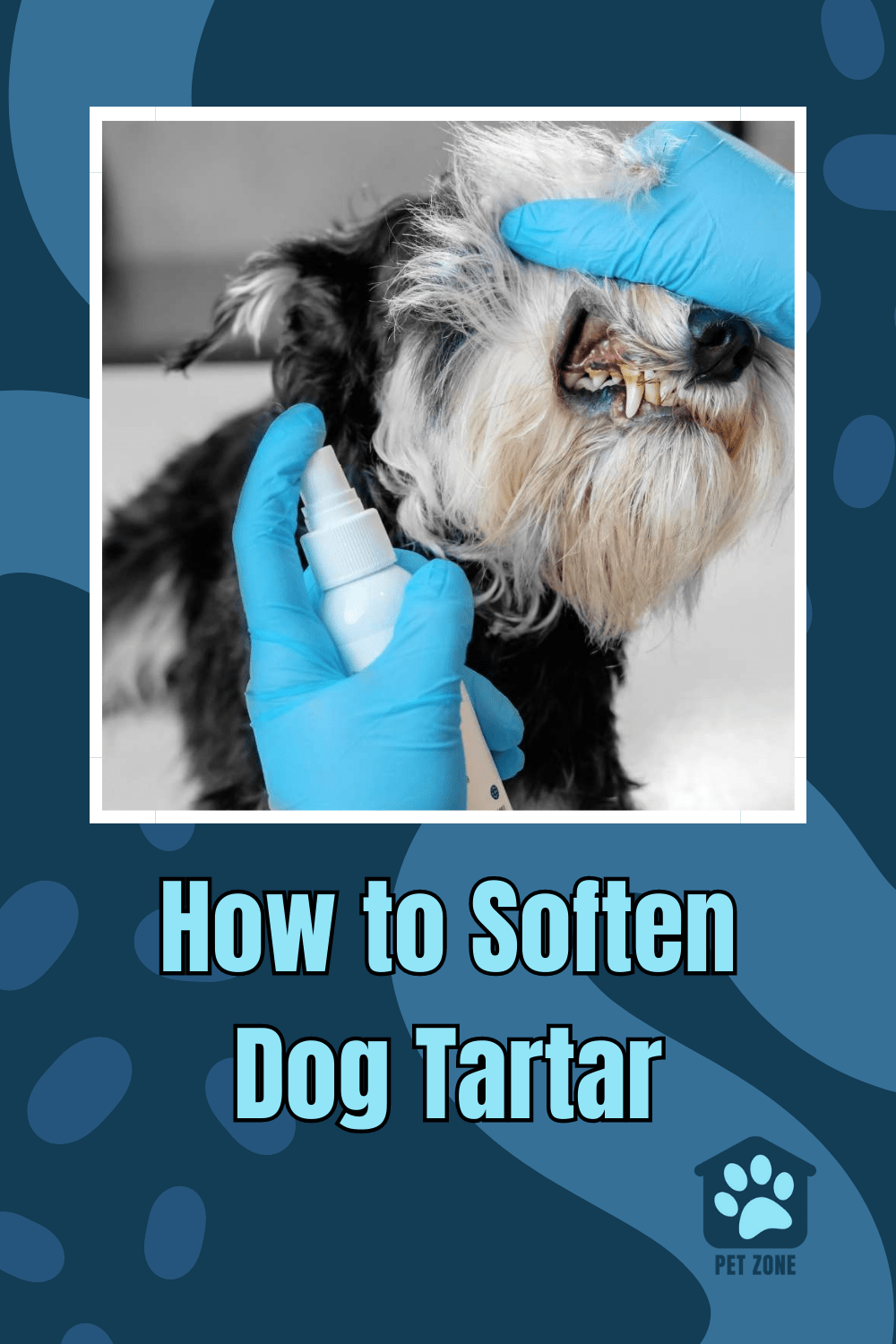


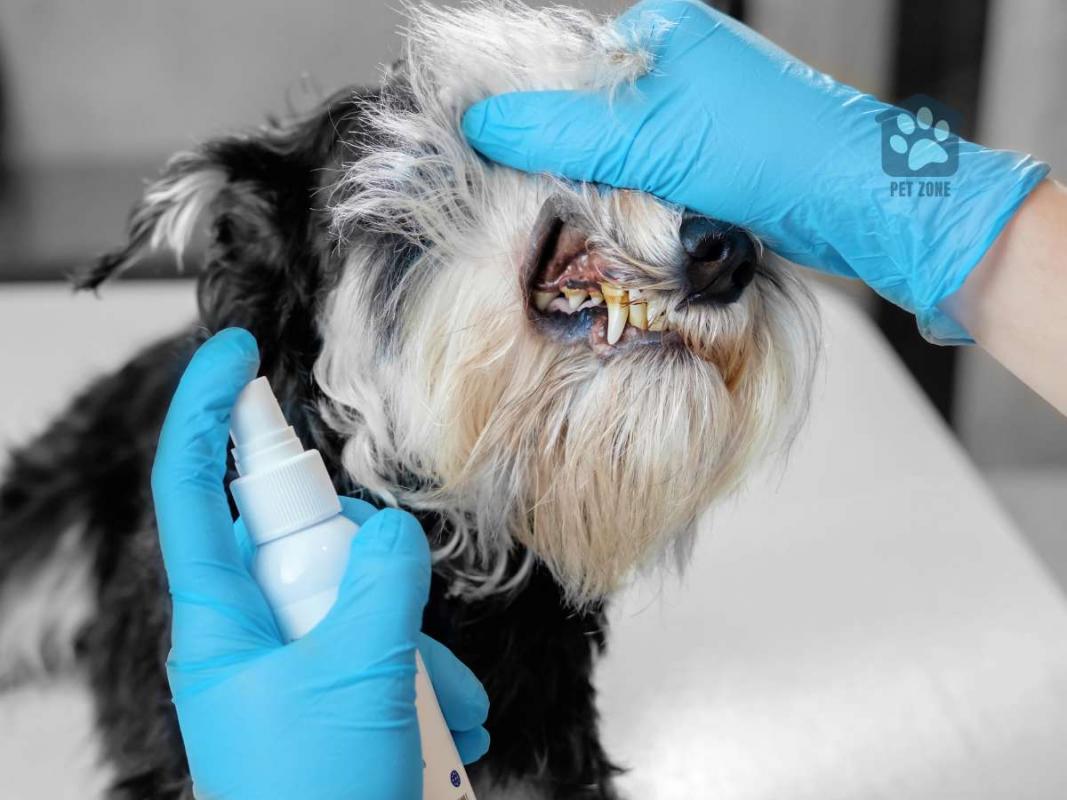
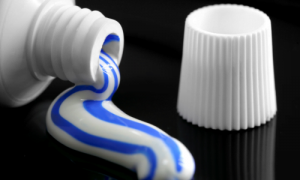
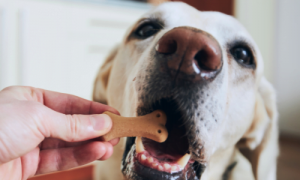




This is great advice for someone owning a pet for the first time! TY
When we had a dog, we gave him dental chews. It really helped to keep his teeth healthy.
Great tips! I feel like I had tried everything and my lab gets a bad report at his yearly dental cleanings. Will try the apple cider vinegar as he already has dental chews and the liquid for his water and I brush his teeth regularly.
I have an almost 4 year old Golden Retriever and she’s always chewing bones (and anything else she can get if we’re being honest). I didn’t know apple cider vinegar helps with tartar. Thanks for sharing!
My pup has struggled with some dental issues recently. I’m going to try some of these tips. I didn’t realize spple cider vinegar could help soften her dog tartar.
Oral health is such an important part of overall health! Thank you for sharing these tips.
We always have canine friends in the house, so any tips are welcome!
very useful information! It is essential to take care of it throughout dogs’ life because the earlier we work on it the better. I often find dog dental care underappreciated. Great points, I actually didn’t know it is called tartar